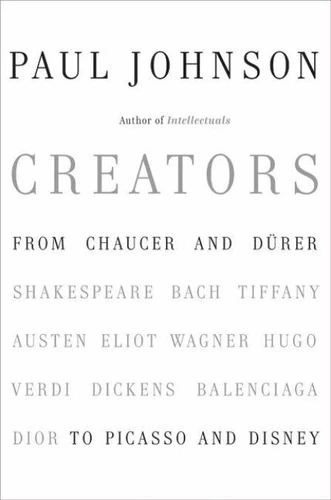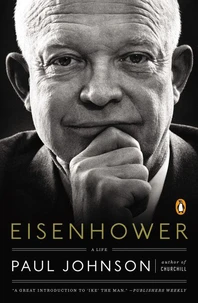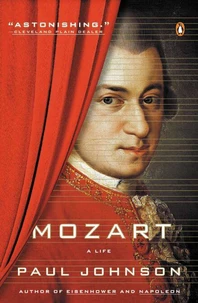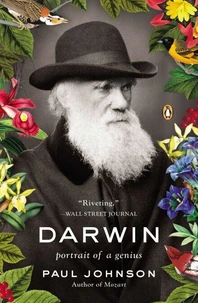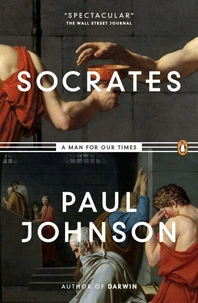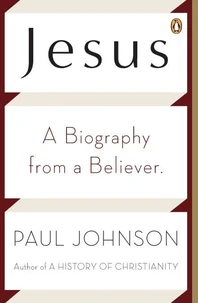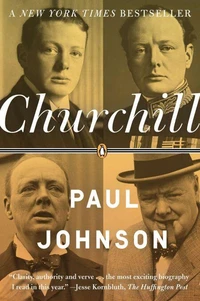Creators. From Chaucer and Durer to Picasso and Disney
Par :Formats :
Disponible dans votre compte client Decitre ou Furet du Nord dès validation de votre commande. Le format ePub protégé est :
- Compatible avec une lecture sur My Vivlio (smartphone, tablette, ordinateur)
- Compatible avec une lecture sur liseuses Vivlio
- Pour les liseuses autres que Vivlio, vous devez utiliser le logiciel Adobe Digital Edition. Non compatible avec la lecture sur les liseuses Kindle, Remarkable et Sony
- Non compatible avec un achat hors France métropolitaine
 , qui est-ce ?
, qui est-ce ?Notre partenaire de plateforme de lecture numérique où vous retrouverez l'ensemble de vos ebooks gratuitement
Pour en savoir plus sur nos ebooks, consultez notre aide en ligne ici
- FormatePub
- ISBN978-0-06-174095-4
- EAN9780061740954
- Date de parution13/10/2009
- Protection num.Adobe DRM
- Infos supplémentairesepub
- ÉditeurHarper
Résumé
In this companion volume to his bestselling Intellectuals, Paul Johnson looks at a number of creative artists, including T. S. Eliot, Johann Sebastian Bach, Louis Comfort Tiffany, Christian Dior, and Pablo Picasso. He explains the different ways in which Jane Austen, Madame de Stael, and George Eliot struggled to make their voices heard as women in a male-dominated world. Exploring the life of Victor Hugo, he discusses whether creative genius and low intelligence can co-exist.
And Johann Sebastian Bach provides possible clues about the role of genetics in creativity. In this instructive and witty book, Johnson argues that creation is a mysterious process that cannot be satisfactorily analyzed, but that can be illustrated in such a way as to bring out its salient characteristics. Paul Johnson has written many books, including Intellectuals, George Washington, Modern Times, and Art: A New History.
He contributes a weekly essay to the Spectator and a monthly column to Forbes. He lives in London, England, and lectures all over the world. "A splendidly idiosyncratic book, brooking no compromise and bristling with opinions." - Evening Standard
And Johann Sebastian Bach provides possible clues about the role of genetics in creativity. In this instructive and witty book, Johnson argues that creation is a mysterious process that cannot be satisfactorily analyzed, but that can be illustrated in such a way as to bring out its salient characteristics. Paul Johnson has written many books, including Intellectuals, George Washington, Modern Times, and Art: A New History.
He contributes a weekly essay to the Spectator and a monthly column to Forbes. He lives in London, England, and lectures all over the world. "A splendidly idiosyncratic book, brooking no compromise and bristling with opinions." - Evening Standard
In this companion volume to his bestselling Intellectuals, Paul Johnson looks at a number of creative artists, including T. S. Eliot, Johann Sebastian Bach, Louis Comfort Tiffany, Christian Dior, and Pablo Picasso. He explains the different ways in which Jane Austen, Madame de Stael, and George Eliot struggled to make their voices heard as women in a male-dominated world. Exploring the life of Victor Hugo, he discusses whether creative genius and low intelligence can co-exist.
And Johann Sebastian Bach provides possible clues about the role of genetics in creativity. In this instructive and witty book, Johnson argues that creation is a mysterious process that cannot be satisfactorily analyzed, but that can be illustrated in such a way as to bring out its salient characteristics. Paul Johnson has written many books, including Intellectuals, George Washington, Modern Times, and Art: A New History.
He contributes a weekly essay to the Spectator and a monthly column to Forbes. He lives in London, England, and lectures all over the world. "A splendidly idiosyncratic book, brooking no compromise and bristling with opinions." - Evening Standard
And Johann Sebastian Bach provides possible clues about the role of genetics in creativity. In this instructive and witty book, Johnson argues that creation is a mysterious process that cannot be satisfactorily analyzed, but that can be illustrated in such a way as to bring out its salient characteristics. Paul Johnson has written many books, including Intellectuals, George Washington, Modern Times, and Art: A New History.
He contributes a weekly essay to the Spectator and a monthly column to Forbes. He lives in London, England, and lectures all over the world. "A splendidly idiosyncratic book, brooking no compromise and bristling with opinions." - Evening Standard

